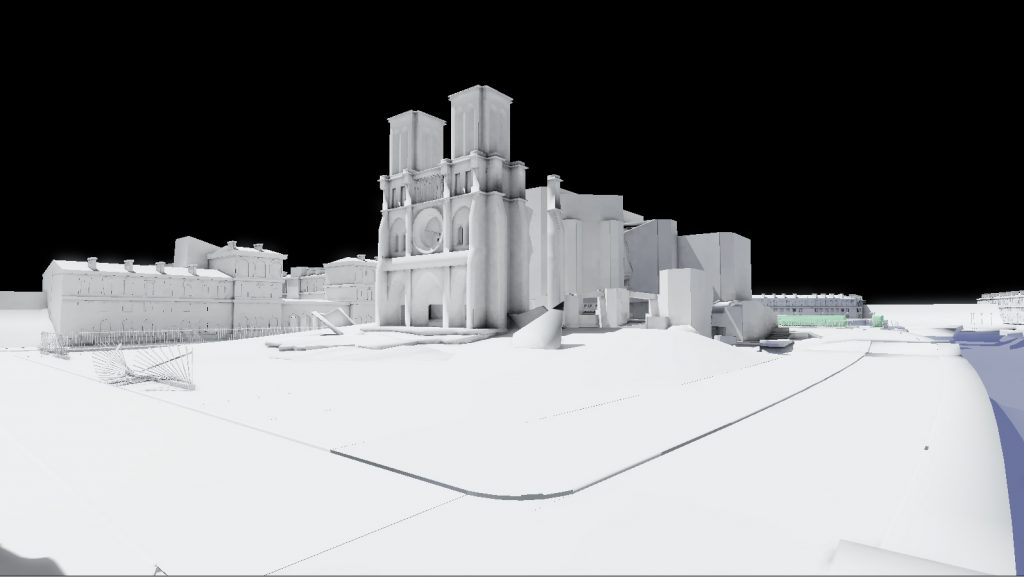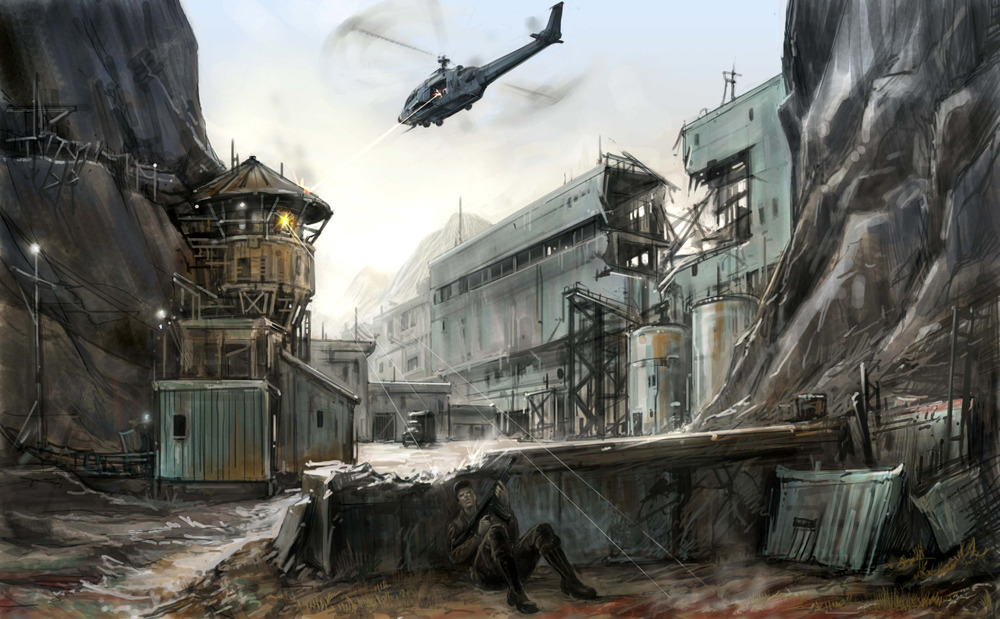Wrench is a cancelled car-combat game that was in development by Ensemble Studios since the early ‘00s, and in its latest form it could have been published by Microsoft for their Xbox 360. It was developed as an internal demo and cancelled before being officially announced to the public, but bits and pieces of its history were shared online by former Ensemble devs such as Rich Geldreich:
“Unfortunately, mostly due to limited funding, our XNA demo didn’t see the light of day. This R&D and tech would later be used in a prototype at Ensemble named “Wrench”, then in a really cool internal demo Ensemble Studios got to show to Bill Gates in 2004 named “SevenDemo”. SevenDemo was a physics and graphics demo we put together in about 10 days to demonstrate what the still in development Xbox 360 console would be capable of doing. I was told he was very impressed. A few months after SevenDemo was shown, the Wrench prototype game was canceled (see below), so I rolled onto Age of Empires 3. Later, I used a lot of this tech in what would eventually morph into Halo Wars.”
“I first worked on the rendering and shader code of a prototype 3rd person car combat project named “Wrench” (also see here). After Wrench was canceled (this kind of game just didn’t match our strengths, honestly), I helped modernize and optimize Age of Empire 3’s graphics engine. (Age3 looked really good already, but Wrench had rendering and lighting tech that pushed the game even further.)”
“The team at Ensemble made this demo with the Wrench prototype code in approximately 7-10 days, where it was known inside Ensemble as “SevenDemo”:
“Video of the never before seen “Wrench” graphics/physics engine technology demo shown to Bill Gates by Ensemble Studios (Dallas, TX) in early 2004. We put this D3D9 shader model 3 demo together in roughly 7 days, but we had been working on the tech for around 18 months. The prototype AMD graphics cards we were using at the time became unstable at high clock frequencies, so we unfortunately had to show it at only 640×480 or 800×600 resolution with no AA. The real-time participating media effect used on the entire scene (pay attention to the light rays poking in from the front garage doors as they are riddled with bullet holes) consumed around 40% of our entire GPU budget. This effect is 100% dynamically computed by ray marching through dynamic 16-bit spotlight shadow maps, and was a very advanced effect for 2004. This demo shows light prepass rendering, HDR rendering, omni light shadows via dual paraboloid shadow maps, spotlight shadow maps, and dynamic light scattering effects on the omni/spot lights. Much of this engine code wound up shipping in Age of Empires 3 and Halo Wars.”
Also Richard wrote on Twitter:
“The Wrench gameplay prototype was a 3rd person outdoor car shooter. We had multiplayer working. The prototype was coming along, but I think Ensemble got pressured by Microsoft to pivot back to RTS game prototypes. This led to the “Phoenix” prototype, which then led to Halo Wars 1”
It’s interesting to notice that Phoenix was also the name of a cancelled RTS in development by Bungie for the first Xbox, but as far as we know it was not related to Ensemble Studio’s canned project. Unfortunately Ensemble Studios was closed by Microsoft in late 2008 after publishing Halo Wars. Some of their cancelled games were revealed in an article about the “last visit” at the studios by Gamasutra, with titles such as Agent, Bam! and their Halo MMO.
If you know someone who worked on Wrench and could help us to preserve more screenshots or videos from this lost game, please let us know!


